One of the best songs written about West Virginia in the past half century was created by a man who was nicknamed for a state two time zones away.
Bruce “U. Utah” Phillips wrote “The Green Rolling Hills of West Virginia” in 1971 while reflecting on a visit to the Mountain State years earlier.
"We were driving in an old car that had a bad leak in the radiator,” Phillips recalled in a story on his website. “We stopped every now and then in these hollers to get water and to talk to the people.
“In one place, there was a woman about 50 years old who let us use her pump. I commented to her that down in the town, it seemed that everybody I ran into wanted to get out, wanted to go north or go west and find some decent work….
"But, back in the hollers,” Phillips added, “it seemed like the people were rooted to the land, didn't want to go anywhere, even though there wasn't any work.”
She gave him many reasons, some of which he didn’t fathom, “but she gave me one I could understand, because I have a great affection for the mountains in my state, and I miss them when I spend a lot of time in the east.
“She said to me, 'It's these hills. They keep you. And when they've got you, they won't let you go.' "
Her comment inspired the key line in the chorus of the song that Phillips would later compose:
The green rolling hills of West Virginia
Are the nearest thing to heaven that I know.
Though the times are sad and drear
And I cannot linger here,
They'll keep me and never let me go.
The Hazel and Alice Contribution
In 1973, when Hazel Dickens and Alice Gerrard recorded their first album together, they wanted to include Utah Phillips’ lovely ode to their home.
However, they felt the song needed a better ending, one that offered not only a bit of hope, but also a call to join the fight to preserve those green rolling hills. They added a new last verse:
Someday I'll go back to West Virginia,
To the green rolling hills I love so well.
Yes, someday I'll go home
And I know I'll right the wrong.
These troubled times will follow me no more.
EmmyLou Steps Up
Emmylou Harris, who recorded the song on her classic 1978 album Quarter Moon in a Ten Cent Town, said she loved how the song was about homesickness and displacement.
But she added that it took on new meaning when she learned about the menace of mountaintop removal, decapitating hundreds of peaks and poisoning thousands of miles of streams in Kentucky, West Virginia, Virginia and in her home state of Tennessee.
“It seems like artists today, particularly country artists, tend to play it safe,” Harris said, “and I count myself in there. I’ve never been that comfortable with overtly political songs. But mountaintop removal is based on pure greed and it’s doing such incredible damage.”
That’s why, she said, Phillips’ stark tune so resonated with her.
Our Take on the Tune
Fifty years ago, The Flood’s dear friends H. David Holbrook, Bill Hoke and Susan Lewis formed the core of the best local string band, The Kentucky Foothill Ramblers, and, gee, but they taught everyone a slew of wonderful tunes.
The group used to sing “Green Rolling Hills of West Virginia” at nearly every show. The Ramblers are long-gone now, but home recordings preserve a lot of the band's repertoire as performed at those parties where The Flood was born back in the ‘70s.
Nowadays "Green Rolling Hills of West Virginia" is always on the playlist whenever Floodster Emerita Michelle Hoge is in the room, as she was one night last month.
More West Virginia Tunes?
Finally, if you’d like more of The Flood’s Mountain State melodies, check out the playlist the guys put together a few years ago to celebrate West Virginia Day. Click the link below:
The West Virginia Blend
We always take note of West Virginia Day, and instead of singing “Happy Birthday” to our Mountain Mama, we usually choose a composition by one of the great Mountain State songwriters, such as the late Hazel Dickens.

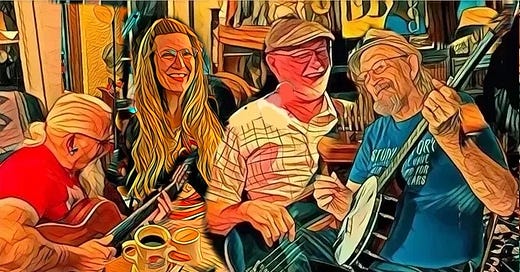


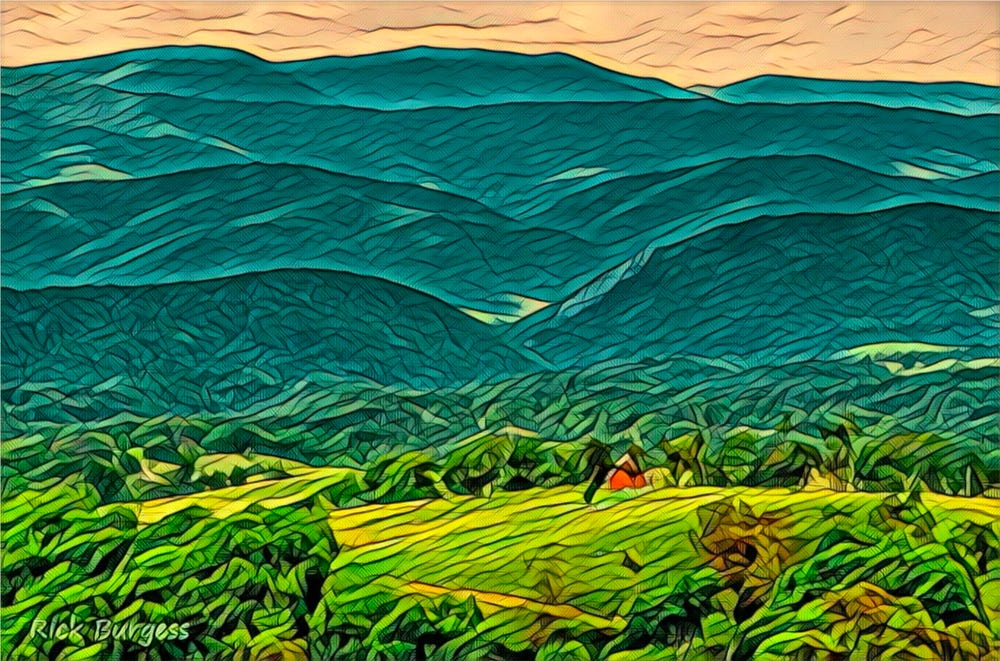

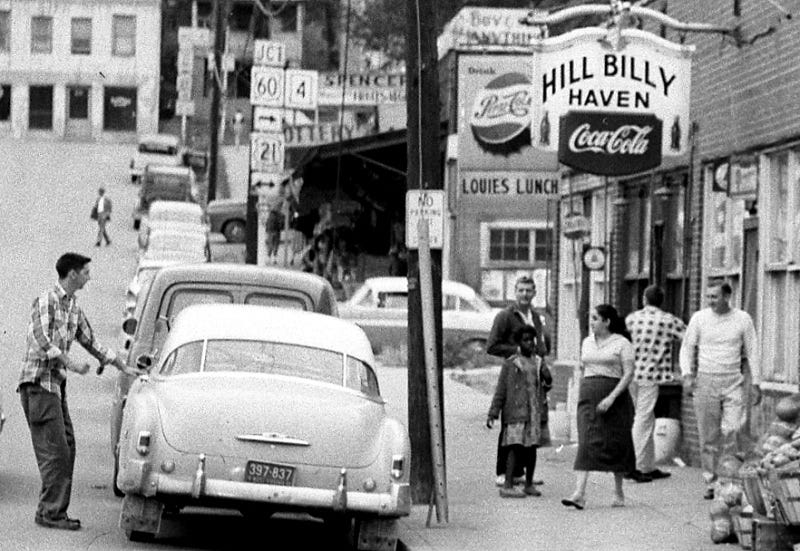
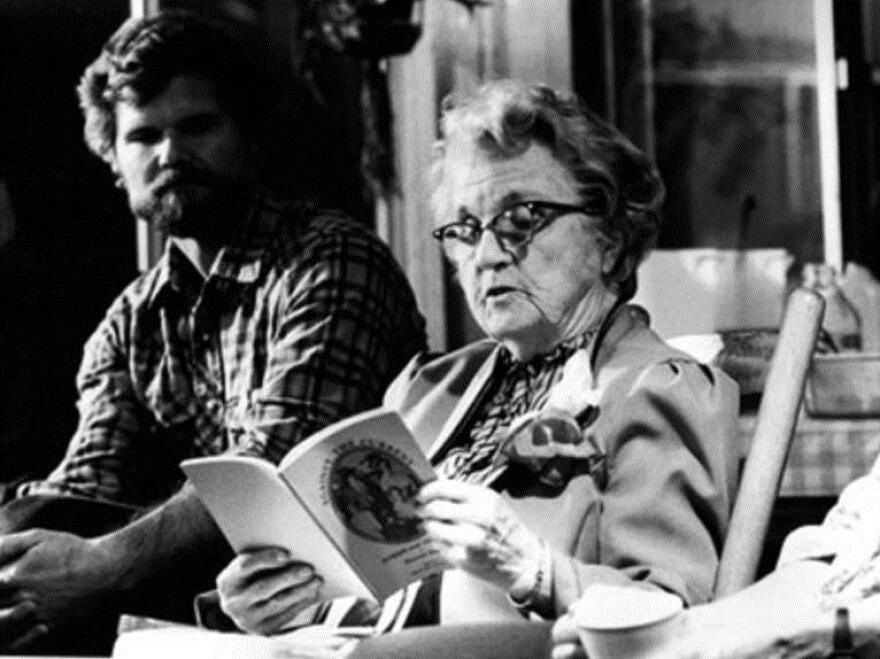




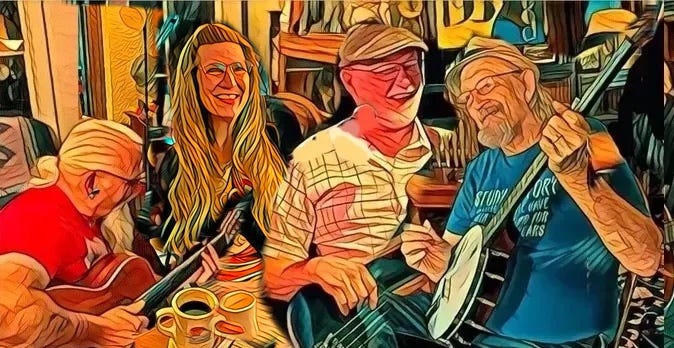










Share this post